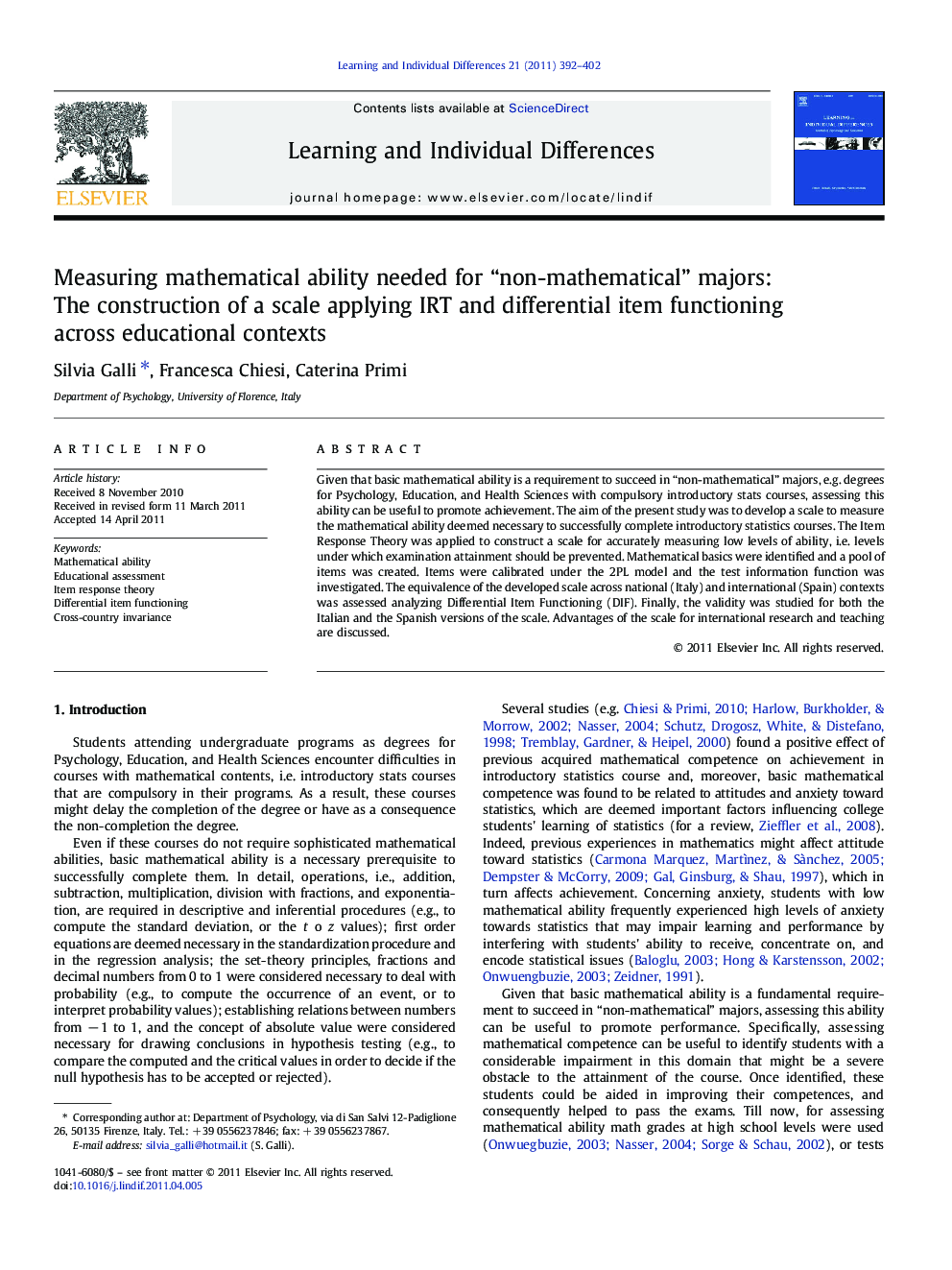| Article ID | Journal | Published Year | Pages | File Type |
|---|---|---|---|---|
| 364966 | Learning and Individual Differences | 2011 | 11 Pages |
Given that basic mathematical ability is a requirement to succeed in “non-mathematical” majors, e.g. degrees for Psychology, Education, and Health Sciences with compulsory introductory stats courses, assessing this ability can be useful to promote achievement. The aim of the present study was to develop a scale to measure the mathematical ability deemed necessary to successfully complete introductory statistics courses. The Item Response Theory was applied to construct a scale for accurately measuring low levels of ability, i.e. levels under which examination attainment should be prevented. Mathematical basics were identified and a pool of items was created. Items were calibrated under the 2PL model and the test information function was investigated. The equivalence of the developed scale across national (Italy) and international (Spain) contexts was assessed analyzing Differential Item Functioning (DIF). Finally, the validity was studied for both the Italian and the Spanish versions of the scale. Advantages of the scale for international research and teaching are discussed.
Research Highlights► A scale to measure basic mathematical abilities (PMP) was constructed applying IRT models. ► The PMP invariance across educational contexts was investigated. ► The PMP is relevant to the field of statistics education.
